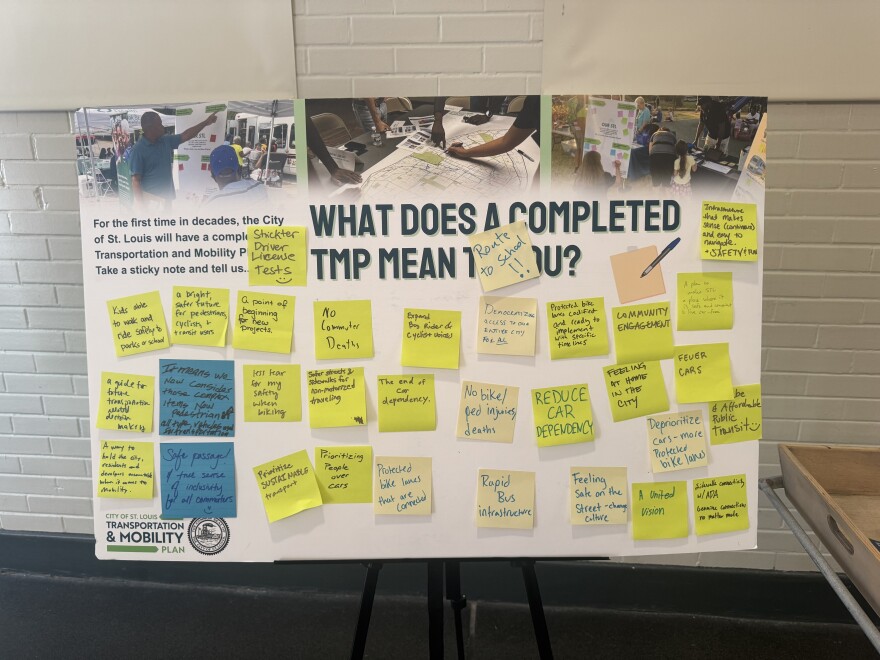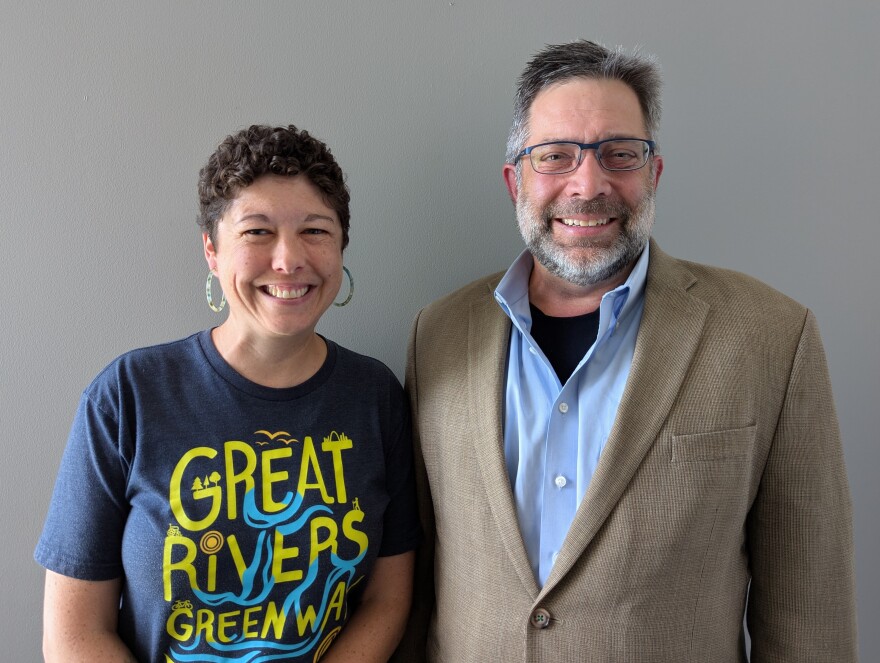Last week, the City of St. Louis presented a first look at its Transportation and Mobility Plan.
“I think it's a great framework for the city to use going forward,” said St. Louis resident Will Gallagher at a feedback session on July 16. “It's not going to design any streets in particular, but [it gives] the engineers the things they need to say, ‘These are the values we're looking for when we design streets.’”
When the full report is published in September or October, it will be the city’s first official transportation plan since 1948. Planners hope it will lead to safer, more connected streets and sidewalks.

“The City of St. Louis has engaged in a lot of traffic studies that are often related to individual projects or corridors,” said Scott Ogilvie, program manager for Complete Streets. “This is a more general look at what the most important things should be for the city — to provide guidance to elected officials, departmental leaders and people setting budgets in the future about how best to maintain and enhance the transportation network we have.”
To identify high-injury areas for drivers and pedestrians, the planning team sought feedback from 1,241 people who participated in their survey last year.
“It’s not just about designing streets, it's about designing streets and sidewalks,” said urban planner Jacque Knight, project manager for the Transportation and Mobility Plan. “One of [our] goals is focusing on better moving children around our city and people that have unique mobility needs — elderly people or people living with disabilities.”
Other attendees of the recent Transportation and Mobility Plan feedback session said the region has a long way to go to improve street safety — particularly for cyclists and pedestrians. For Jeff-Vander-Lou neighborhood resident Liz Sondhaus, change cannot come soon enough.
“We have children walking the streets. My friends are afraid to cross the street to go to a park because they've seen people hit in the crosswalk, so I have a lot of concerns about that,” she said. “There was a lot of talk about plans and strategies [at the session], [but] I didn't see a lot about specific actions.”
Once a full draft of the plan is released in the fall, it will be open to public comment. After that, the city's Planning Commission will consider the plan for adoption. It will then be the city’s acting transportation guideline for the next 10 to 25 years.
Ogilvie and Knight discussed the Transportation and Mobility Plan on Wednesday’s St. Louis on the Air. Emma Klues of Great Rivers Greenway and Shawn Leight of CBB Transportation Engineers and Planners also joined the conversation to talk about how the city’s plan fits into larger efforts to improve the entire region’s roadways.

In 2024, Leight worked with East-West Gateway Council of Governments to create a Regional Safety Action Plan with the goal of reducing fatal injuries by 50% by 2050. The plan enables municipalities and public agencies to apply for federal road improvement grants.
The City of St. Louis recently used the plan to apply for a $20 million grant to add traffic calming measures on West Florissant Avenue — a wide road known for risky pedestrian crossings and excessive speeding.
“This section of West Florissant Avenue is the worst-performing roadway in the region for fatal and serious injury crashes,” Leight said. “There have been three fatalities already in 2025.”
A redesign will include improved crosswalks and bus stops. Additional changes include a shared-use path to the east side of the street, the conversion of a southbound through lane to a center left-turn lane and strategically placed medians intended to slow traffic, prevent passing on the shoulders and reduce pedestrian crossing distances.
“We're very excited with that plan, and these other plans that are happening,” Leight said. “We're putting a framework in place to be able to address these issues that have been in this region for a long time.”
For more reflection on what needs to happen to improve the safety of all users of St. Louis roadways, listen to St. Louis on the Air on Apple Podcasts, Spotify, YouTube or click the play button below.
“St. Louis on the Air” brings you the stories of St. Louis and the people who live, work and create in our region. The show is produced by Miya Norfleet, Emily Woodbury, Danny Wicentowski, Elaine Cha and Alex Heuer. Darrious Varner is our production assistant. The audio engineer is Aaron Doerr.







